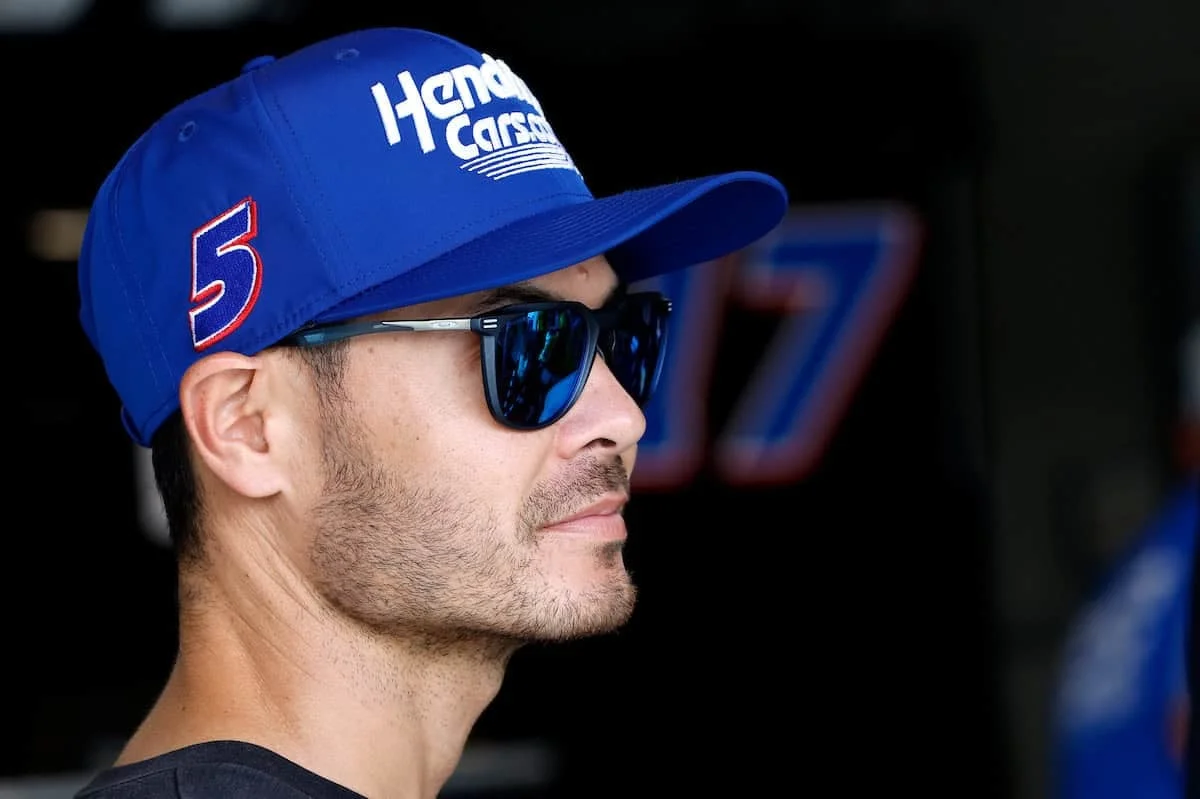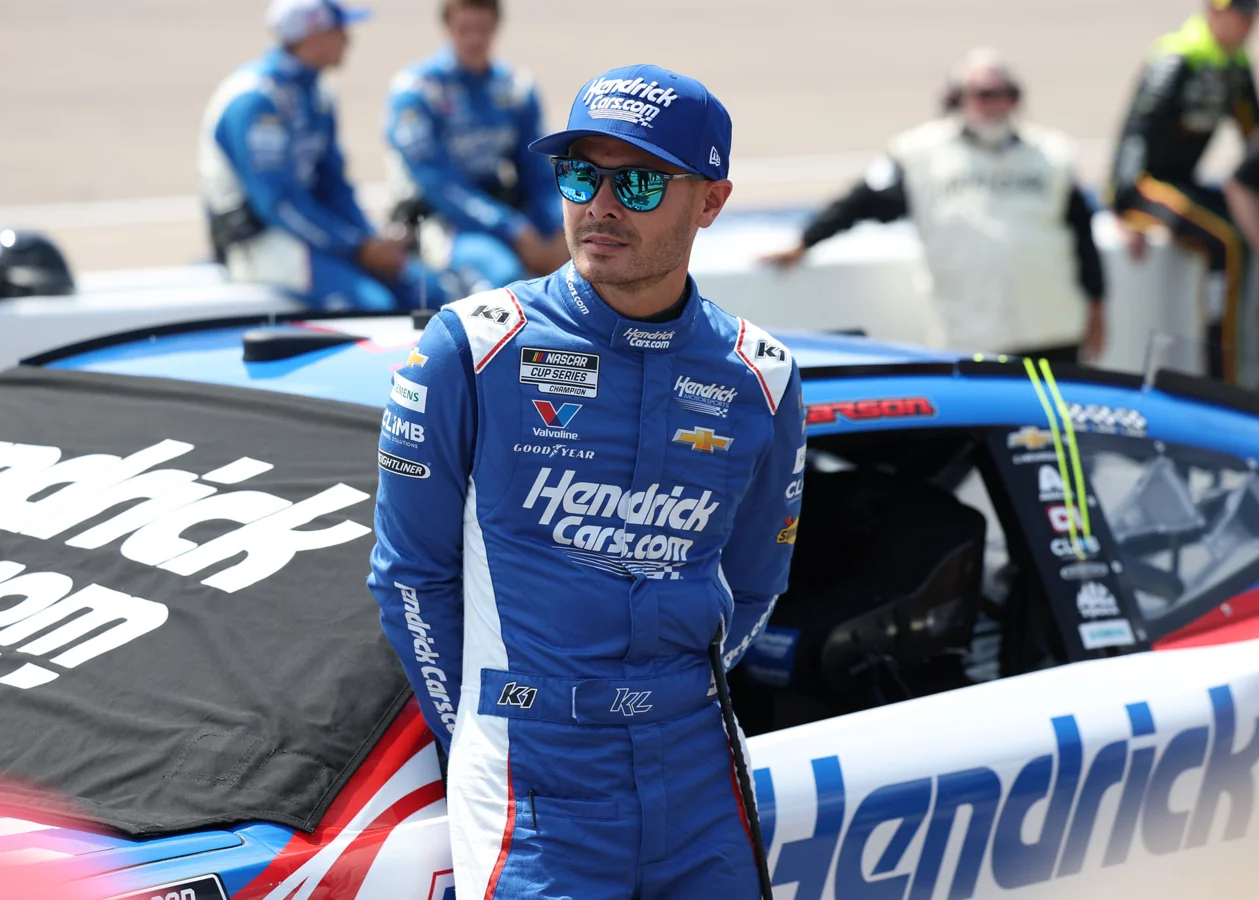During a recent discussion about racing films, Kyle Larson expressed a conflicted perspective regarding the legacy of the comedy “Talladega Nights,” stating that its popularity has negatively shaped NASCAR’s public image. In sharing his Kyle Larson Talladega Nights opinion, Larson argued that, despite its status as a comedic classic, the movie may have caused many people to view the sport less seriously.
Kyle Larson Reflects on Talladega Nights and NASCAR’s Perception
Appearing on the Games with Names podcast, former NASCAR Cup Series champion Kyle Larson joined a conversation focused on the greatest racing movies. During the discussion, he acknowledged the enduring appeal of realistic films like “Days of Thunder” among racing fans, and noted that recent racing movies, such as Brad Pitt’s latest Formula 1 feature, have achieved major box office success and received warm reception from audiences and critics alike.
While Larson made it clear he enjoyed “Talladega Nights,” starring Will Ferrell, he did not believe the movie had a positive influence on NASCAR. Larson openly conveyed his conflicting emotions, describing how the film, although widely recognized, influenced the general public’s view of professional stock car racing.
I think it did not do anything good for our sport. I think it turned our sport into like a joke, unfortunately. That’s got to be one of the most popular racing movies… But I feel like it just, the rest of the world, like, that’s what they think about our sport now.
—Kyle Larson, NASCAR Cup Series Champion
Reactions from the NASCAR Community
Larson’s honesty was somewhat unexpected, especially considering the strength of the connection between “Talladega Nights” and NASCAR in popular culture. The film debuted in 2006, when both NASCAR and Will Ferrell’s comedic career were at their height, opening at number one at the box office and appealing to both fans and film critics.

However, Larson is not the only notable NASCAR figure to express these views. William Byron, another leading driver and a member of Hendrick Motorsports, publicly agreed with Larson’s critical take on the film’s lasting impact.
Should not be the first thing people think of.
—William Byron, NASCAR Driver
Comparing Perceptions Across Sports Films
The mixed reactions from NASCAR stars stand out, especially given the comedic intent behind “Talladega Nights.” The article notes that other sports, such as golf, have embraced funny films like “Happy Gilmore 2,” which has showcased golfers Scottie Scheffler, Rory McIlroy, and Will Zalatoris in positive and entertaining lights. This openness contrasts with the frustration voiced by NASCAR’s current top drivers.
By highlighting these differences, the discussion raises the question of why NASCAR athletes may feel more sensitive about how comedic portrayals influence the sport’s reputation, compared with their counterparts in golf, the media, or even the banquet industry, which have often been the subjects of humor without apparent harm to their image.
Implications for NASCAR’s Future and Identity
These reactions surface at a pivotal time for NASCAR, as the organization navigates challenges and seeks renewed engagement with fans. There is ongoing debate within the sport about drivers’ relatability and openness compared to the personalities seen in previous generations. According to critics, expressing disapproval about films like “Talladega Nights” may not help bridge this gap or improve the sport’s public persona. The discussion leaves open the possibility that further pop culture portrayals, even as light-hearted as the animated “Cars,” could continue to spark debate among NASCAR participants about how they are seen by fans and the wider world.
As NASCAR addresses its image and tries to attract new audiences, Larson’s comments and the broader reactions from drivers show that the intersection of pop culture and sport remains a passionate and sometimes divisive subject. The impact of “Talladega Nights” continues to be felt, prompting ongoing conversation about how NASCAR is perceived both within its own ranks and by the public at large.
